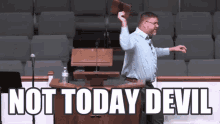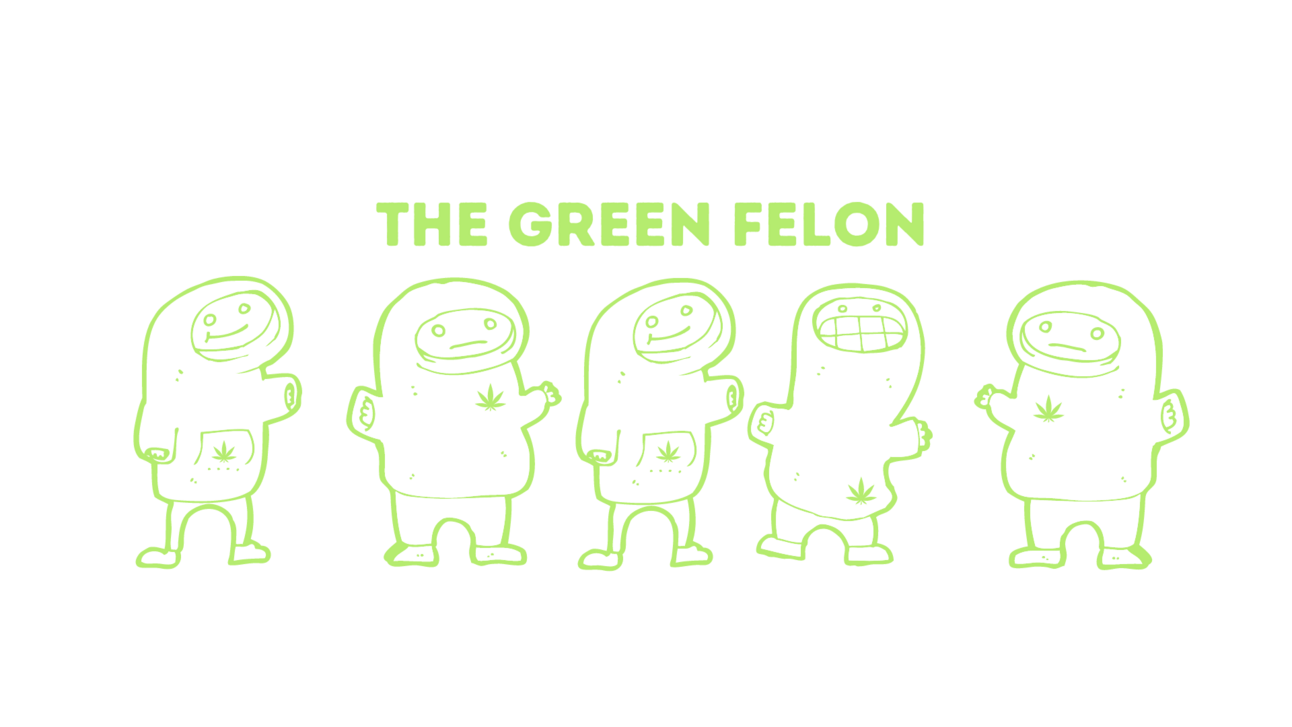
News 🎙️ Highlights:
Pastor 💚 Adam Swanson from Murfreesboro, Tennessee, ventured into the CBD 🍂 industry after hearing congregants share how CBD alleviated their ailments. Fox Business
A coalition of 6️⃣5️⃣ senior pastors and rabbis in Pennsylvania publicly supported the medical use of marijuana, including CBD, recognizing its potential health 🏨 benefits.WHP

Quick Read 🎞️:
🔯 Sacred Endorsements — Prominent religious leaders from various faiths, including Christianity, Judaism, Islam, Hinduism, and Buddhism 🧘♀️, now publicly advocate for CBD, citing ethical health practices and theological support 💪🏻.
🕉️ Spiritual Pharmacology — CBD is reframed by clergy as a non-intoxicating, theologically permissible agent that interacts with the endocannabinoid 🎋 system to promote holistic healing and neurochemical balance.
🕎 Faith-Based CBD Initiatives — Churches, synagogues, and mosques have launched wellness programs featuring CBD oils ❄️ and topicals to aid chronic pain, anxiety, and trauma recovery among congregants.
✝️ Doctrine vs. Cannabidiol — Conservative religious factions remain skeptical, yet many leaders view CBD’s non-psychoactive properties as ethically acceptable ✅ within sacred frameworks.
🪬 Theological Market Shift — With declining trust in institutional medicine, religious figures position CBD as a spiritually sound 👂🏾 alternative, blending scripture with botanical science.

🕊️ Religious Leaders Who Advocate for CBD
In a world 🟢 increasingly blurred by partisan politics, consumer capitalism, and algorithm-driven culture, an unexpected alliance has emerged at the intersection of spirituality 📿 and science. Religious leaders—once viewed as guardians of tradition—are now entering the green conversation, voicing thoughtful, even fervent support for CBD (cannabidiol).
What happens when the pulpit 🛐 meets the plant? The result is a theological recalibration of ancient doctrines, now filtered through the lens of neuroscience 🧬, botany, and trauma-informed ministry.
Coachella Valley Church describes itself as an Ethiopian Zion Coptic Church which is monotheistic, worships a single God referred to as Jah, and uses cannabis as a sacrament.”
Cannabis in Canon
While the Book 📗 of Genesis may not explicitly mention hemp-derived cannabidiol, the biblical 🌾 tradition is hardly devoid of plant-based medicine. Take “kaneh-bosm” (קְנֵה-בֹשֶׂם) from Exodus 30:23, often translated as fragrant cane, which some scholars argue may be an early reference to cannabis 🍃. Historical debate aside, it's clear that herbal healing was once as divinely endorsed as tithing 💰.
Enter ▶️ modern CBD, a non-psychoactive compound sourced from the Cannabis sativa plant, stripped of THC’s euphoria but rich in therapeutic potential. The question for religious leaders is not whether CBD can heal, but whether it should 🧐.
Faith Forward: Clergy Who Publicly Support CBD 🗣️
Contrary to assumptions that all religious figures 🗿 oppose cannabis-related substances, many leaders are becoming advocates for CBD. Their reasons range from humanitarian concerns 🫶 to theological convictions about healing and stewardship of the body 🚶🏼♂️.
Below is a curated table of notable clergy who have publicly endorsed CBD, the denominations they represent, and their core rationale 💼:
Name 🏷 | Denomination 💠 | Advocacy Reason 💬 |
|---|---|---|
Rev. Dr. Jamal H. Bryant | African Methodist Episcopal | Criminal justice reform & healing 🧓 |
Rabbi James Kahn | Jewish (Reform) | End-of-life palliative care 🕯️ |
Father Thomas Sundaram | Catholic (Progressive) | Compassionate use in chronic illness 🩼 |
Imam Abdul Malik Mujahid | Sunni Muslim | Ethical CBD use for community wellness 🕌 |
Pastor Craig Gross | Evangelical Christian | Addiction recovery & mental health relief |
Rev. Dr. Serene Jones | Protestant (UCC) | Trauma-informed pastoral care & anxiety support 😌 |
Swami Parameshwarananda | Hindu Vedantic | Balance of mind, body, and spiritual harmony |
Bhikkhu Piyadassi | Theravāda Buddhist | Mindful healing practices & bodily detachment |
These leaders are not merely voicing support—they're actively reshaping the narrative of wellness 🛏️ and sin. Many view CBD not as a slippery slope to cannabis misuse, but rather as a pharmakon—a Greek 🌮 term meaning both poison and remedy—whose value depends on intention and context.

Sanctifying 👊🏼 the Endocannabinoid System
If we are, as Psalm 139 says, "fearfully 👻 and wonderfully made," then the endocannabinoid system—the biological network that interacts with CBD—may very well be divine in origin. Comprising receptors (CB1️⃣, CB2️⃣), enzymes, and endogenous cannabinoids like anandamide, this system regulates mood, pain, inflammation, and more.
For many religious thinkers, acknowledging the body's innate ability to receive cannabinoid compounds isn’t heresy—it’s holy 📖. Father Sundaram notes, “If God created this system within us, why not engage it responsibly?”
Such logic appeals to theologians grounded in stewardship and compassionate medicine 🩺, especially when framed in light of the opioid crisis, which has disproportionately harmed religious communities 🧍♂️.
The Gospel 🈸 According to Cannabidiol
Religious endorsements of CBD 🦠 are not merely symbolic. They have real-world implications for community care, sermon content, and church-based health ministries. In 2024, Pastor Bryant’s New Birth Missionary Baptist Church launched a CBD co-op 🏘️ offering low-cost oils and creams to elderly members managing arthritis and neuropathy.
Similarly, Rabbi Kahn has led grief workshops ✂️ incorporating CBD salves, helping mourners engage in chesed(lovingkindness) toward their own aching bodies during Shiva. “It’s not a shortcut to healing,” Kahn asserts, “but a supportive companion” 👥.
Even Imam Mujahid, known for his traditionalist views 👀, has endorsed CBD-infused ointments for diabetic patients during Ramadan to manage pain without breaking their fast 🧆.

Doctrinal Dissonance or Divine 👑 Adaptation?
Not all sects are embracing CBD with open arms 🤗. Conservative branches of Christianity, Islam, and Judaism remain skeptical, citing scriptural caution against "altering the mind" or engaging with substances resembling intoxicants 🍷.
Yet even here, CBD’s non-psychoactive nature provides a theological loophole 🪤. It’s not about pleasure; it’s about purpose. The religious rebranding of CBD 🥝 hinges on separating it from its wilder sibling THC—the cannabis compound that still evokes Reefer Madness among clergy trained in 20th-century abstinence rhetoric 🎓.
In many ways, the CBD debate 👏🏻 within churches and synagogues mirrors the broader evolution of religious thought—moving from moral absolutism to situational discernment 🧩.
Evangelizing Wellness: CBD Sermons, Spirituality & Sales 🛍️
As congregations grow more health-conscious, clergy are leaning into CBD as a tool for holistic ministry 🔔. Sermons now incorporate discussions on trauma-informed spirituality, neurochemical imbalances, and inflammation as a metaphor for societal unrest 🔥.
Some pastors have even formed partnerships 🤝 with local CBD businesses, sparking ethical questions: Should churches profit from products derived from cannabis? Is this compassionate capitalism or a branding crisis?
Critics warn of “Green Gospel 🔰” opportunism. But others see this as a reformation moment—one where modern medicine and sacred texts shake hands, not point fingers 🖕🏼.

The Ethical Exodus 🚏
Why are religious leaders diving into CBD advocacy now? The answer, perhaps cynically, lies in public trust metrics 📊. While faith in government wanes and skepticism toward Big Pharma peaks, religious institutions still hold credibility in many marginalized communities.
CBD is not just a product 🧃—it’s a symbol of bodily autonomy, post-pandemic resilience, and decentralized wellness. For faith leaders, championing its benefits signals a willingness to evolve—and an acknowledgment that healing can come from unexpected sources ✨.
Still, the stakes 🎲 are high. Endorsing CBD carries reputational risk, especially in regions where cannabis is still stigmatized or criminalized ⛓️. But these clergy are betting that the moral cost of silence outweighs the potential backlash 💥.
Holy Oils and Sacred Science: What’s Next? 🧴
Expect more religious institutions to pilot CBD-based community health initiatives in the coming years, especially as federal regulations soften 🧑⚖️. Churches will distribute salves alongside communion wafers 🍞. Synagogues will host interfaith panels on plant-based pharmacology 🗓️. Mosques will explore prophetic medicine through a cannabinoid lens 🧿.
There’s even talk 💋 of seminaries offering courses on the theological implications of cannabis—an intersection of pharmacognosy and faith once deemed unimaginable.
The movement isn’t about endorsing a miracle cure 💘. It’s about reimagining suffering, care, and embodiment in a world where anointing oil may now include cannabidiol extract 🫧.

Final 🏁 Benediction
To be clear, religious support for CBD 🥑 is not a theological free-for-all. It’s a meticulously considered stance—one that weighs science, scripture, and suffering with nuance 🔍. These leaders are not abandoning orthodoxy; they’re expanding it 🔓.
As the psalmist wrote ✏️, “He makes grass grow for the cattle, and plants for people to cultivate—bringing forth food from the earth” 🌍. Today, that food may be oil. And that oil may be CBD.
If your rabbi, pastor, imam, or monk recommended CBD 🏝️ for spiritual or physical healing—would you listen, or would you light a different path 🛣️?
😍 Endure Storms ☔️

The information provided in this newsletter is for informational purposes only and does not constitute medical, legal, or professional advice. Always consult with a qualified professional before making any decisions based on the content shared here.

